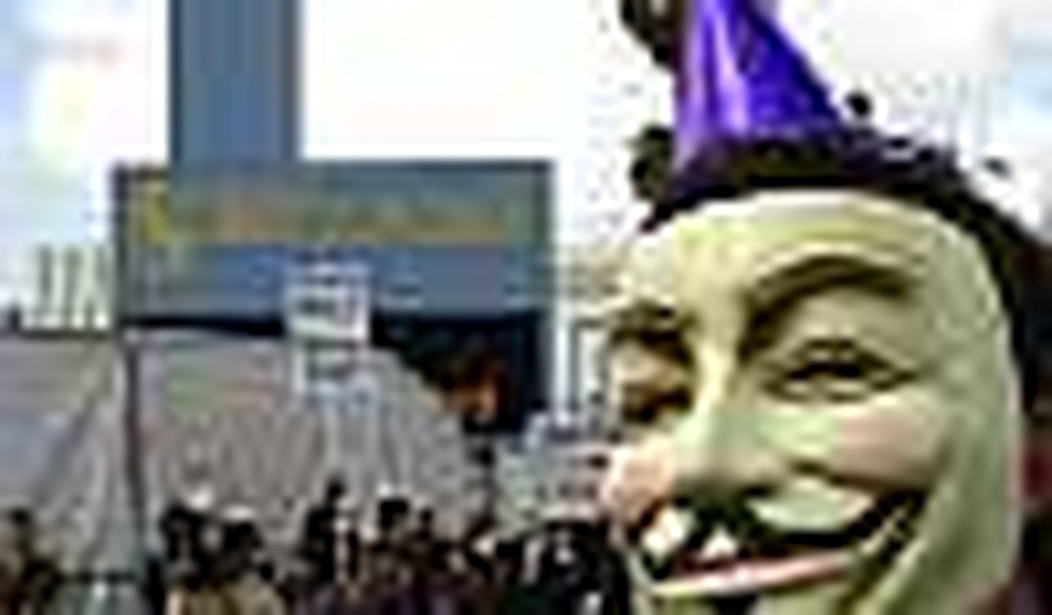Even in the United States, despite the opinion of some, free speech is not absolute. Some restrictions have to be created in order to protect the safety and certain rights of others. However, in the United States there is no right not to be offended.
The infamous extremists of the Westboro Baptist Church protesting homosexuality at the funerals of fallen service members angers people on all sides of the political spectrum. While some believe there should be boundaries between these protesters and the grieving families, very few argue that they have no right to express their hateful views. Voltaire’s famous and eloquent defense of tolerance and freedom of speech, “I disapprove of what you say, but I will defend to the death your right to say it,” has become a reflective theme in America.
Freedom of speech doesn’t seem to be as clear cut in the U.K. The Guardian informs us of an unnamed fifteen-year-old that was served a summons from the City of London for using the word “cult” on a sign to describe the Church of Scientology during a peaceful demonstration protesting the controversial religion. There has been an understandable outrage throughout the world over this incident, but the police were not outside the bounds of doing their job of enforcing the law. It is also important to note that their Human Rights Act Article Ten, granting freedom of expression, is much more specific in allowing restrictions for various reasons than our own Constitution.
The ridiculous element of this entire controversy is the very law the police were enforcing. After “strongly advising” him to remove his sign, they cited section five of the Public Order Act 1986 to the boy, before handing him a court summons and removing his sign. This law restricts free speech if it offends someone, and it opens the door wide for the “slippery slope” theory.
Here is a quote of the exact law in reference:
5. Harassment, alarm or distress.
– (1) A person is guilty of an offence if he-
(a) uses threatening, abusive or insulting words or behaviour, or disorderly behaviour, or
(b) displays any writing, sign or other visible representation which is threatening, abusive or insulting, within the hearing or sight of a person likely to be caused harassment, alarm or distress thereby.
This law is disturbing in countless ways and is reminiscent of Orwell’s 1984. It opens the floodgates to censorship and abuse of power. Even scarier, this law is similar to many of the “hate speech” laws politicians are trying to pass in America. Banning the free exchange of ideas just because they are insensitive, politically incorrect, or unpopular is a leap down a path toward destroying the very spirit and ideals behind individual freedom and responsibility.
To create a law that restricts speech based on whom it might offend is beyond ridiculous, and it is a dangerous road travel. Some people are offended by anything they disagree with, and sometimes the truth hurts. Some people are so sensitive they are offended by public prayer. Who makes this distinction? Do we allow the police and the state to make these crucial calls? Britain would certainly have a difficult time trusting the police to make these distinctions when they have been the subject of considerable controversy in accepting gifts from the Church of Scientology as recently as two years ago.
This could definitely be a test case for Britain on whether its many libel laws will destroy its traditions of free speech. The slippery slope argument is the first reaction from human rights lawyers, like Shami Chakrabarti. He stated, “This barmy prosecution makes a mockery of Britain’s free speech traditions. After criminalizing the use of the word ‘cult’, perhaps the next step is to ban the words ‘war’ and ‘tax’ from peaceful demonstrations?” If the trend of criminalizing the criticism of religions continues to spread in other European countries, freedom of speech will fall farther into danger, and drawing a line will become extremely difficult.
Thankfully, cooler and wiser heads have prevailed, and free speech lives another day. The Crown Prosecution Service told the police they would not be prosecuting the boy. International attention and strong support from human rights groups, like Liberty, may have been influential in this decision. Whatever the reason for the decision, it was the right one and a victory for free speech. However, the ridiculous law that put a kid in this situation in the first place still needs to be given a hard look, and, most likely, done away with.
This is also a great example for America to pay attention, heed warning, and hopefully recognize the dangerous consequences that political correctness threatens to free speech. Absolute free speech may not be found anywhere, but America has the most open and robust free speech found in the world. This is something we take for granted far too often. Hopefully, examples like this one in Europe can provide us with insight and an opportunity to stop and appreciate the freedoms we enjoy. It is to be devoutly wished that we will not allow the same thing to happen to our country because there are activist elements fighting to bring this same stifling trend to America and too often they are succeeding.









Join the conversation as a VIP Member